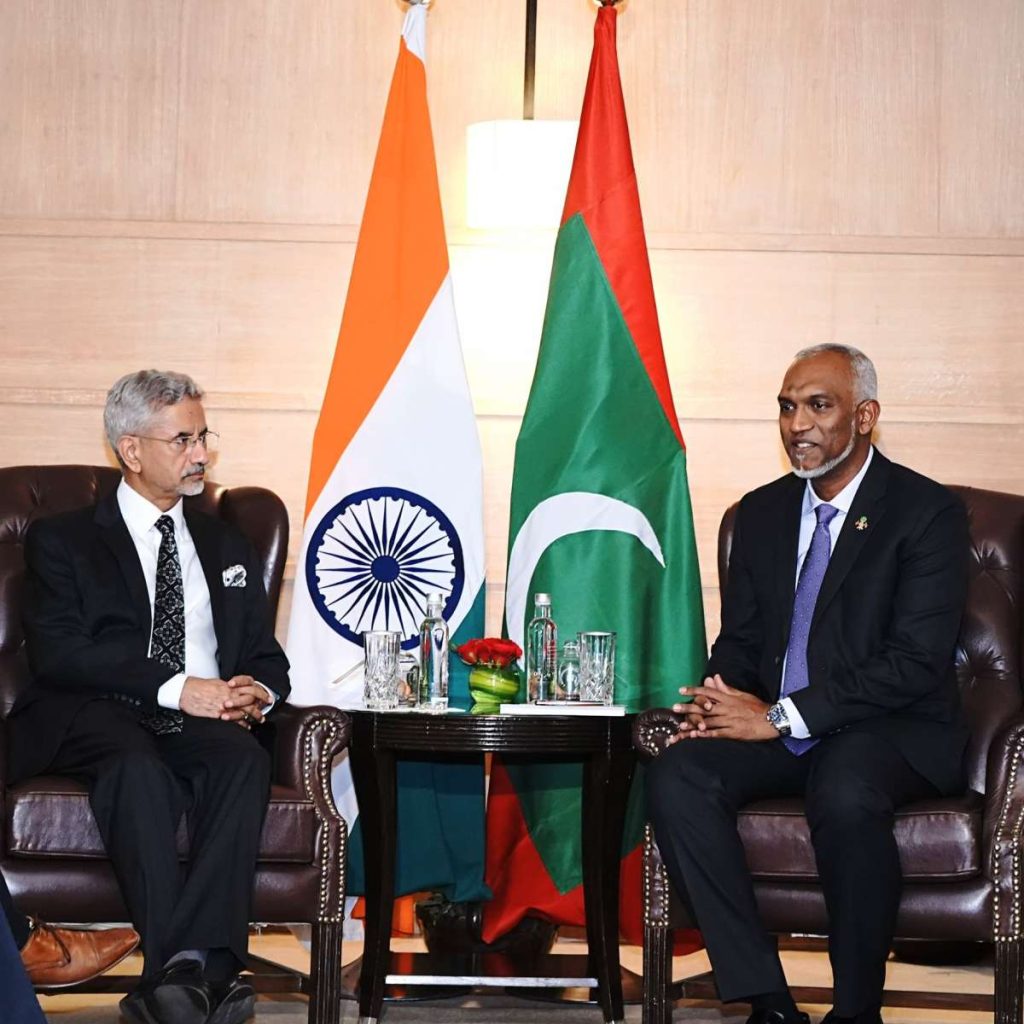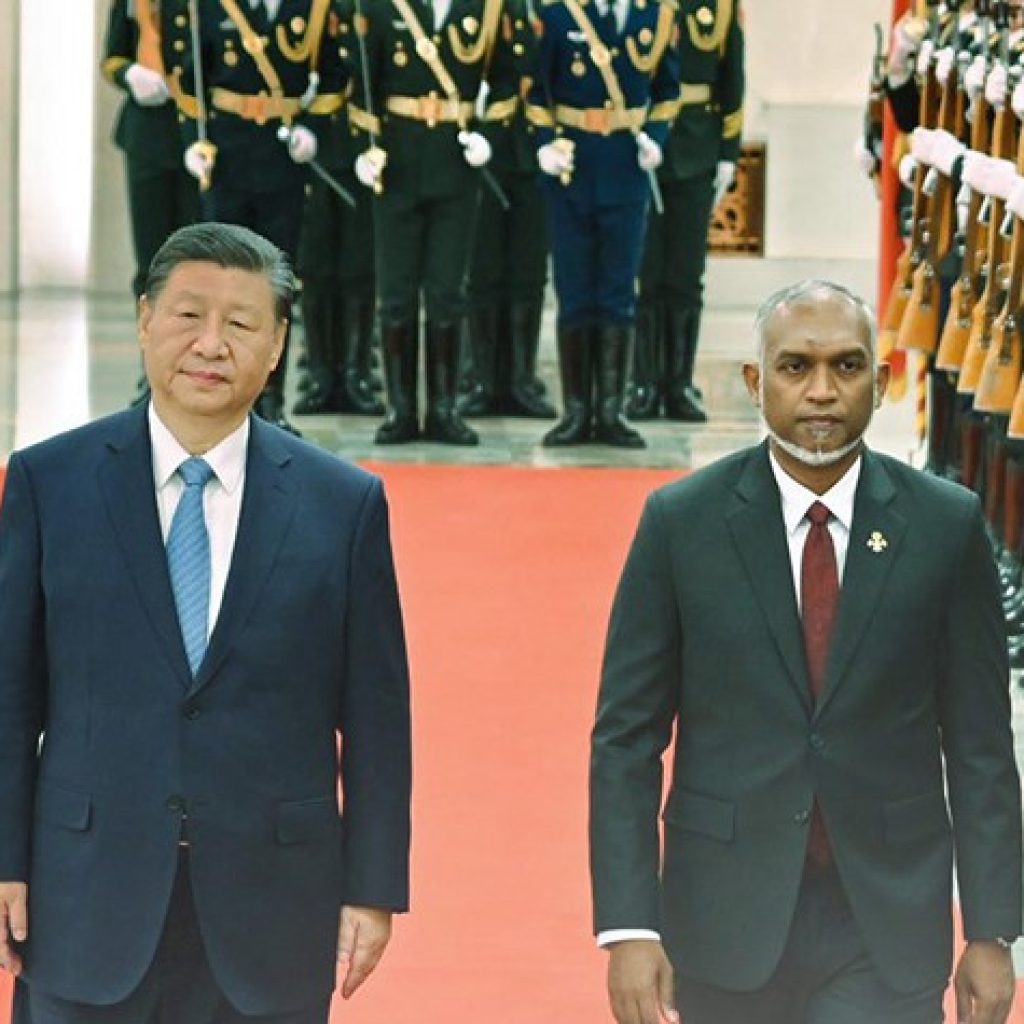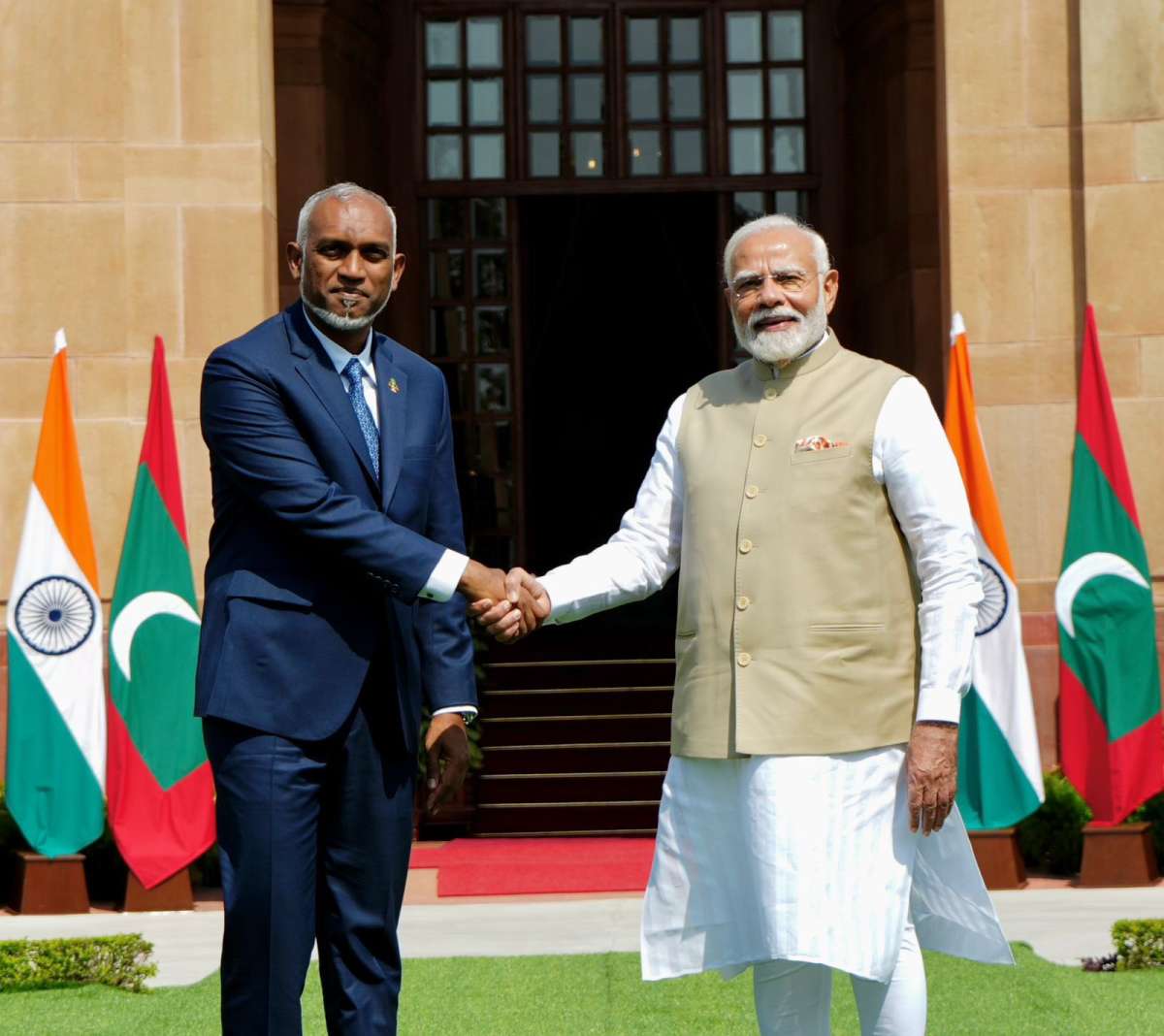It is apparent that President Muizzu, motivated by pressing economic considerations, is actively seeking to restore and strengthen diplomatic ties with India….reports Asian Lite News
Maldivian President Mohamed Muizzu’s ongoing five-day state visit to India is his second trip to the country in four months. It highlights a significant diplomatic shift as Muizzu, who previously backed an “India Out” campaign in the Indian Ocean archipelago, now seeks to navigate the complex relations while balancing the country’s ties with China.
Muizzu, who took power last year, is recognised for opposing India’s significant influence in the Maldives and called for the withdrawal of approximately 80 Indian military personnel managing two rescue helicopters and a Dornier aircraft. This demand was met in May when India replaced military staff with civilian technical personnel.
A month later, he attended the swearing-in ceremony of Prime Minister Narendra Modi, who assumed office for a third consecutive term.
Breaking with tradition, Muizzu did not make India his first state visit after assuming the presidency, signalling a clear shift in his foreign policy. Meanwhile, his increasing alignment with China had further complicated relations. Earlier this year, the Maldives permitted the Chinese research vessel Xiang Yang Hong 3 — perceived as a surveillance ship — to dock in its waters, raising Indian concerns about potential data collection by Chinese to support submarine operations in the region.

Concurrently, Muizzu visited China and signed 20 agreements that elevated bilateral ties to a comprehensive strategic cooperative partnership, including a military assistance pact viewed as detrimental to India’s strategic interests.
Relations between the Maldives and India reached a nadir when a ‘Boycott Maldives’ campaign emerged on Indian social media following derogatory remarks made by three Maldivian ministers about Prime Minister Modi. Although these ministers were swiftly suspended, the incident significantly reduced Indian tourist numbers in the Maldives.
After Covid-19, Indian tourists represented the largest segment of visitors to the archipelago, but their numbers fell by 50,000 over the past year, resulting in an estimated loss of USD 150 million for the Maldivian economy.
Ideological and rhetorical considerations frequently take a backseat in realpolitiks, especially in the face of deteriorating economic conditions.
Presently, the Maldives is facing a significant fiscal crisis, characterised by an external public debt estimated at approximately USD 8 billion and foreign exchange reserves that have dwindled to USD 440 million, a sum sufficient to cover only about one and a half month of imports.
Given a troubling debt-to-GDP ratio of around 110 per cent, credit rating agencies such as Moody’s and Fitch have downgraded the nation’s creditworthiness, as it endeavours to avert a scenario reminiscent of that experienced by Sri Lanka. In May, the International Monetary Fund (IMF) flagged the Maldives for its elevated risk of debt distress and recommended comprehensive policy reforms.
Since then, the relationship between the Maldives and India appears to be evolving towards reconciliation and enhanced cooperation.
In September, India intervened to mitigate the risk of a significant default on Islamic bond repayments by subscribing to Maldivian government treasury bills valued at USD 50 million, a measure it had also undertaken in May.
During the administration of former President Ibrahim Solih, India extended financial assistance amounting to USD 1.4 billion to the Maldives.

China remains another principal creditor, accounting for 42 per cent of the Maldives’ total foreign debt as of 2021.
Recently, President Muizzu announced that China has consented to defer loan repayments for a period of five years.
Prior to his arrival in New Delhi, President Muizzu commented to the BBC, stating, “India is fully aware of our fiscal challenges and, as one of our principal development partners, will consistently be prepared to alleviate our burdens”.
During the ongoing visit, he is expected to seek arrangements for currency swaps and debt restructuring. The discussions are also expected to culminate in agreements pertaining to infrastructure development, enhanced bilateral cooperation across various sectors, and, notably from a strategic standpoint, security collaboration.

In an interview with a leading Indian daily on the first day of his visit, President Muizzu acknowledged India as a valued partner and friend, asserting that the Maldives would refrain from any actions that could compromise India’s security.
In conclusion, it is apparent that President Muizzu, motivated by pressing economic considerations, is actively seeking to restore and strengthen diplomatic ties with India.
This shift is a positive development for India, given the Maldives’ strategic significance within India’s framework for the Security and Growth For All in the Region (SAGAR) vision and the ‘Neighbourhood First’ policy.
Conversely, this rapprochement may pose challenges for China, as the Maldivian President appears poised to prioritise regional stability and security over rhetorical gains that previously undermined India’s regional interests.
Overall, the current trajectory indicates a promising potential for meaningful cooperation that aligns with both Maldivian and broader regional interests.
ALSO READ: Harris, Trump both no lesser evil, says Jill Stein














